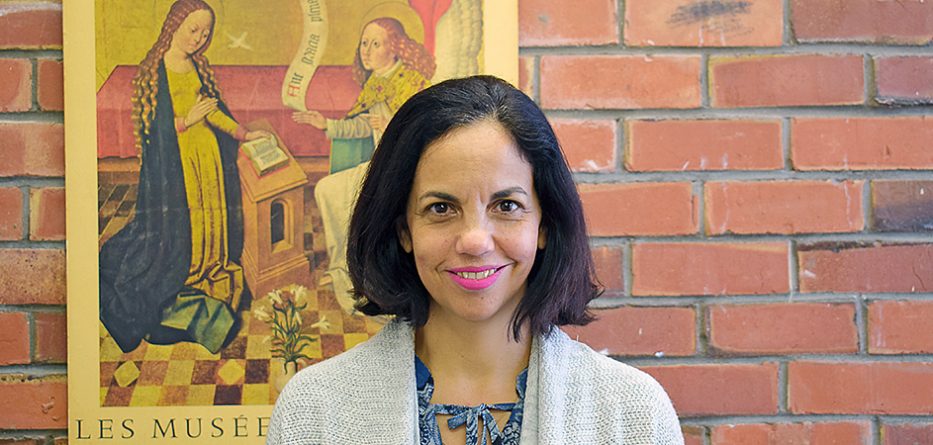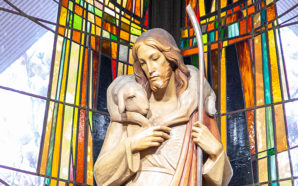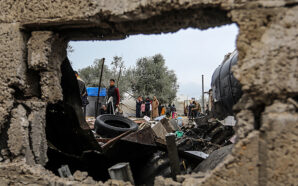The presence of women in seminaries and seminary formation is vital for future priests and prevention of sexual abuse, but the Church must go beyond that and act now, a top New Zealand Catholic theologian said.
Earlier, Canadian Cardinal Marc Ouellet, Prefect of the Congregation for Bishops, was interviewed by Vatican News about the role of women in priestly formation programmes.
“We must radically change” how priests interact with women, the cardinal was quoted by Vatican News as saying, adding that “during formation it is important that there is contact, discussion, exchanges” with women.
The Vatican News also report Cardinal Ouellet as saying that having women on seminary formation teams “would help a candidate interact with women in a natural way, including in facing the challenge represented by the presence of women, attraction to a woman.”
Dr Rocio Figueroa said New Zealand is doing “pretty well” in terms of having women in priestly formation, as against its counterparts around the world.
“I agree with Cardinal Ouellet that the presence of women in seminaries and seminary formation is vital. In New Zealand, at the Catholic Theological College (previously known as Good Shepherd College), we have a very good balance of male and female lecturers,” she told NZ Catholic.
“Currently we have five female lecturers and seven males. Apart from the good gender balance, the college also has a variety of ages and cultures within the staff, which gives the students the possibility of being enriched by many different perspectives.”
Dr Figueroa said the problem she sees is that the seminary is too “male-centred” and future priests don’t have a lot of contact with women.
“It is like a bubble in which they don’t learn how to have healthy relationships with the opposite sex, and this can damage their process of sexual maturity. Perhaps we can rethink ways in which seminarians can have more contact with families and lay people,” she said.
Cardinal Ouellet said in the interview that he agreed that, if women were involved in the formation of priests, the sex abuse scandal might have been prevented.
“There certainly is some truth in that because man is an affective being. If interaction between the sexes is missing, there is a risk of developing compensations . . . [ which can] express themselves [in] the exercise of power or in closed relationships, a closure that becomes manipulation and control . . . and which can give rise to the abuse of conscience and sexual abuse.”
“I think that, for a priest, learning to relate to women in the environment of formation is a humanising factor that promotes equilibrium in the man’s personality and affectivity,” the cardinal was quoted as saying.
Dr Figueroa said, while she agreed with the cardinal on this issue, the problem is not “just about the presence of women in seminaries”.
“We need more women in decisional positions within the Catholic Church. Pope Francis continues reminding us of the importance of battling against clericalism,” she said.
Dr Figueroa said Western societies have “largely overcome” a patriarchal style of leaderships, but the Church has not.
“The power in the Church is profoundly linked to those who administer the sacraments. For me, this is a huge problem that doesn’t reflect the spirit of the Gospel,” she said.
Dr Figueroa cited women apostles, prophets and teachers who were leaders in the early Church: Priscilla, Phoebe and Junia.
“We need to show the value of dignity and equality between male and female, not just in our words, but in our own structures,” she said.
“I think that the Church lacks half of humanity in its decision-making process and is not receiving the knowledge and particularities that women can bring. Women are able to offer their talents in the charismatic dimension of the Church, but not in the institutional,” she further explained.
Dr Figueroa said the lack of female participation in the formation of future priests is only one factor.
“The Church has effectively been breathing with one lung,” she observed. “For me, it is not time for reflection because all these things are pretty clear. It is time for action.”
Reproduced with permission from the May 31 – June 13 (issue 590) edition of NZ Catholic, the national Catholic newspaper of New Zealand, published by the Catholic Bishop of Auckland.








